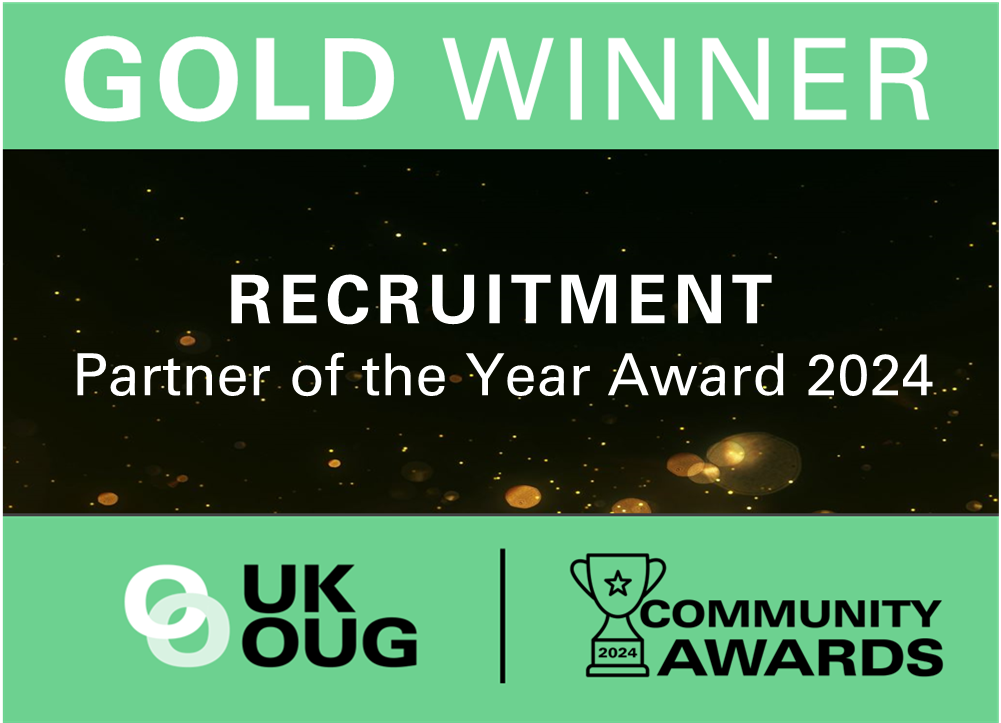When hiring for ERP (Enterprise Resource Planning) roles, the pressure is on. The right hire can streamline your business operations, improve efficiency and drive growth. The wrong hire can lead to costly delays and setbacks. Here’s how to ensure you secure the right fit for your ERP team:
Screening CVs
Collaboration between HR and hiring managers is key. Work together to spot relevant ERP experience, industry-specific knowledge, and signs of adaptability that match the role and business needs.
Define specific ERP requirements
Clearly outline the technical skills and experience needed for the role, whether with a specific ERP software (e.g., SAP, Oracle, Microsoft) or general knowledge of ERP systems. Consider industry-specific expertise if relevant.
Look for problem-solving skills
ERP implementations can be complex. It’s easy to focus on the technical skills and overlook many of the soft skills needed. Look for candidates with technical know-how and problem-solving abilities, and an agile mindset.
Look for certifications
Certifications are a tangible way to verify candidate skills and expertise in ERP systems. Certifications may include:
- Oracle ERP Cloud Certification: Oracle offers a comprehensive ERP Cloud certification programme that includes practical tests for system setup, configuration, and troubleshooting, which are integral to ERP hiring assessments.
- SAP Case Study Approach for ERP: SAP recommends case study-based evaluations for ERP consultant roles, assessing real-world problem-solving skills in ERP environments.
- Microsoft Dynamics 365 Certification: Microsoft provides certification programmes focused on customising and configuring ERP systems, which help check candidates' ability to tailor ERP solutions to business needs.
These resources offer formal training and real-world applications, assisting HR and hiring managers to make confident, informed decisions when hiring ERP professionals.
Consider skills-based hiring
While certifications are valuable, hands-on ERP system experience is key. Prioritising skills over traditional qualifications enhances hiring effectiveness in tech roles, particularly for ERP project teams. This approach ensures experienced candidates possess the necessary competencies to drive innovation and success. Assess the candidate’s ability to adapt to new challenges and scale with your business needs.
At the interview stage
At the interview stage, it’s no longer just about technical fit. This is the opportunity to assess cultural alignment, team collaboration potential, and long-term value.
Assess cultural fit
ERP professionals have to work with different departments, so strong interpersonal and communication skills are crucial. Ensure candidates align with your company’s culture and values, as this aids collaboration.
Involve key stakeholders
Include colleagues from IT, finance, and other relevant departments in the interview process. ERP systems impact many functions, and it’s important that the new hire can collaborate across teams.
Evaluate long-term potential
ERP needs evolve, so look for candidates who show growth potential and can take on responsibilities as the system matures within the business.
Incorporate tailored technical assessments
Technical assessments help measure candidates’ ERP expertise, problem-solving abilities, and real-world application skills. Evaluations help ensure competency and reduce the risk of unsuitable hires. SHRM research shows that 78% of HR professionals say the quality of their organisation's hires has improved due to their use of assessments. Examples of assessments include:
ERP system configuration test
Ask candidates to configure part of a module in the ERP system. This could be for finance, HR, or supply chain management, based on real requirements. This tests their understanding of system architecture and configuration.
ERP customisation test
Ask candidates to create custom reports or dashboards using ERP tools. This evaluates their proficiency in customising ERP systems to meet business needs.
Case study assessment
Present a scenario where an ERP system fails to meet business requirements and ask candidates to provide solutions. This assesses problem-solving and how they address system-related issues.
Data migration task
Have candidates prove their ability to migrate data from a legacy system to ERP. This tests their knowledge of data integrity, mapping, and transformation processes.
Troubleshooting test
Provide a series of common ERP system errors or issues and ask candidates to diagnose and solve them. This tests their ability to identify and address technical problems.
SQL query test
Since ERP systems often involve databases, ask candidates to write SQL queries to extract data from an ERP system. This helps test their technical skills in database management.
Integration assessment
Have candidates show how to integrate the ERP system with other software or systems.
Assess AI proficiency
At the interview, explore how candidates stay current with emerging technologies. AI and ML are now embedded in ERP systems for predictive analytics, demand forecasting, and process automation. As an interviewer, you’ll want to know: are they using them, and how? What tools or platforms have they integrated? This insight can help you assess their adaptability and ensure they’re ready to grow with your evolving ERP landscape.
Find your ERP advantage
Hiring the right ERP professional takes more than ticking technical boxes. It needs a collaborative approach between HR and hiring managers, a focus on hard and soft skills, and clear, role-specific assessments. By refining each stage of the recruitment process, from CV screening to final interviews, you’ll improve your chances of securing ERP talent that grows with your business and delivers immediate and long-term value.
If you’re looking to recruit your next ERP consultant, contact NU Concept Solutions and take advantage of our free, in-house ERP pre-screening capability. Email This email address is being protected from spambots. You need JavaScript enabled to view it. or call us on 0330 058 3400.

